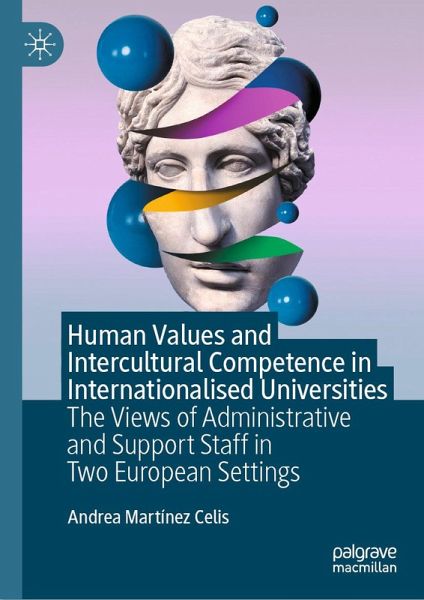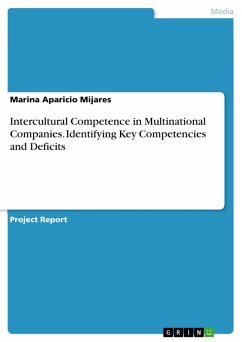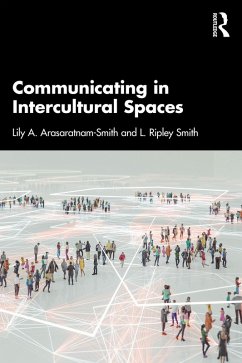
Human Values and Intercultural Competence in Internationalised Universities (eBook, PDF)
The Views of Administrative and Support Staff in Two European Settings
Versandkostenfrei!
Sofort per Download lieferbar
104,95 €
inkl. MwSt.
Weitere Ausgaben:

PAYBACK Punkte
52 °P sammeln!
This book investigates the perceptions of the administrative and support staff at two universities (one in Spain, the other in the Netherlands) regarding internationalisation in their institutions and their own perceived intercultural competence within their contexts. Using the Schwartz value system, the author aims also to understand and explore how human values relate to attitudes and intercultural competence more broadly. The book argues for the importance of intercultural competence of administrative and support staff in internationalised universities, as well as their key role as essentia...
This book investigates the perceptions of the administrative and support staff at two universities (one in Spain, the other in the Netherlands) regarding internationalisation in their institutions and their own perceived intercultural competence within their contexts. Using the Schwartz value system, the author aims also to understand and explore how human values relate to attitudes and intercultural competence more broadly. The book argues for the importance of intercultural competence of administrative and support staff in internationalised universities, as well as their key role as essential agents in promoting internationalisation. The author proposes an interdisciplinary method to evaluate intercultural competence from an emic perspective-through questionnaires and interviews-and from an etic perspective-analysing participants' discursive constructions to reveal their human values. This volume will be of interest to academics and practitioners in fields such as linguistics, intercultural competence, intercultural and cross-cultural studies, internationalisation of higher education, and sociology.This book investigates the perceptions of the administrative and support staff at two universities (one in Spain, the other in the Netherlands) regarding internationalisation in their institutions and their own perceived intercultural competence within their contexts. Using the Schwartz value system, the author aims also to understand and explore how human values relate to attitudes and intercultural competence more broadly. The book argues for the importance of intercultural competence of administrative and support staff in internationalised universities, as well as their key role as essential agents in promoting internationalisation. The author proposes an interdisciplinary method to evaluate intercultural competence from an emic perspective-through questionnaires and interviews-and from an etic perspective-analysing participants' discursive constructions to reveal their human values. This volume will be of interest to academics and practitioners in fields such as linguistics, intercultural competence, intercultural and cross-cultural studies, internationalisation of higher education, and sociology.
Dieser Download kann aus rechtlichen Gründen nur mit Rechnungsadresse in A, B, BG, CY, CZ, D, DK, EW, E, FIN, F, GR, HR, H, IRL, I, LT, L, LR, M, NL, PL, P, R, S, SLO, SK ausgeliefert werden.












